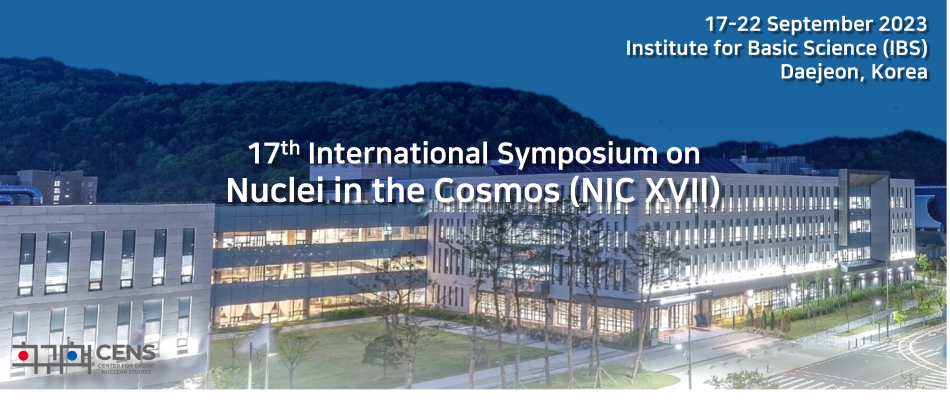Speaker
Description
Classical novae are common cataclysmic events in the Galaxy involving a binary system. In the early Galaxy these explosions proceeded differently, mainly due to the accretion of sub-solar material onto the white dwarf. It has been proposed that these primordial novae explosions produce a different abundance pattern compared to their classical counterparts [1]. In particular, the nuclear flows extend up to the Cu-Zn region, compared to classical novae, which have an endpoint around Ca. To study the impact of the nuclear physics uncertainties in primordial novae nucleosynthesis we performed a sensitivity study, varying all the relevant reactions in the network within their uncertainty using a Monte Carlo approach [5]. We find nuclear reactions which uncertainties affect the production of intermediate mass nuclei under primordial novae conditions. These reactions need to be measured experimentally in stable and radioactive beam facilities to reduce their uncertainties.
*This work is supported by U.S. Department of Energy, Office of Science, Office of Nuclear Physics, under Award Number DE-SC0017799 and Contract Nos. DE-FG02-97ER41033 and DE-FG02-97ER41042.
References
[1] J. José et al., Astrophys. J 622, L103 (2007).
[2] A.L. Sallaska et al., Astrophys. J Suppl. Ser. 207, 18 (2013).
[3] R. Longland et al., Nucl. Phys. A 841, 1 (2010).
[4] C. Iliadis and A. Coc, Astrophys. J 901, 127 (2020).
[5] A. Psaltis et al. (in preparation).

